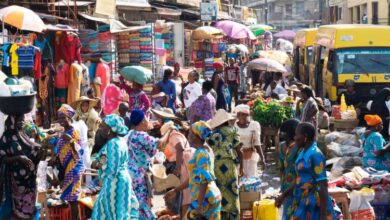PPPs in Indonesia are gaining momentum; these 5 steps were key

As the biggest archipelago country with the fourth largest population, increased infrastructure has been urgently required in Indonesia. We’ve come a long way to where we are today advancing on our infrastructure agenda from when the country recognized that it had a significant infrastructure gap in 2004.
Prior to 2004, Indonesia had a high incidence of project delay, contract renegotiation and termination, cost overruns, and the extensive use of direct negotiation following unsolicited proposals. The government elected in 2004 made infrastructure development a cornerstone of a Five-Year Economic Development Strategy. Central to the strategy was attracting private sector participation in infrastructure delivery. Since 2005, our government has been setting targets to harness private sector financing to develop infrastructure and launched the Public-Private Partnership (PPP) framework.
Also Read: Scaling up PPPs by engaging impact investing foundations
: 24 PPP contracts have been signed with a total investment value of about $16.87 billion (246.38 trillion Indonesian rupiah). Of these, 10 projects are in operation, eight projects are in the construction phase, and the remainder are in the process of getting to financial close. The contribution in terms of knowledge and financing from respective donors such as the Public-Private Infrastructure Advisory Facility (PPIAF) in every step of the process is one of the key factors that helped us attain this achievement.
Although the current situation is discouraging due to the COVID-19 pandemic, infrastructure can help solve two of our main problems: it could jump-start our economic recovery post-pandemic; and it could be a vehicle to avoiding the “middle-income trap” in the medium and long term. The G20 Forum agrees that infrastructure investment can help developing countries cope with the health and economic impacts of the pandemic.
- Establish the legal framework with outreach of stakeholders: Part of Indonesia’s past negative experience with private sector participation was due to the lack of the appropriate institutions and government capacity to prepare and deliver new projects. PPIAF support has focused directly on these issues. The government developed a PPP framework that is now exceptionally strong and in line with global best practices and there is an emerging pipeline of PPPs that have utilized the various tools and institutions that form the framework. One example is that we use infrastructure planning to provide a visible and clear long-term capital plan, combined with a shorter-term Priority Capital Plan.
- Establish a high level de-bottlenecking committee: The Committee for the Acceleration of Priority Infrastructure (KPPIP) was revitalized to reduce the lack of coordination among Indonesian government entities and to overcome a reluctance by line ministries to shift from public works to PPP-type procurement. Indonesia is a huge country with many government ministries mandated for project development. The Committee was established to be a single point of contact for all government agencies, potential funders, and private sector investors for selected infrastructure projects considered to be strategic priority.Following PPIAF’s assistance, the World Bank, through the Indonesia Infrastructure Finance Development Fund (IIFD,) continues to support coordination of the various institutions within the PPP ecosystem. The fund is strengthening the process of project prioritization and enhancing upstream planning and increasing coordination among the Ministry of Finance, the planning ministry (BAPPENAS), and KPPIP.
- Establish financing support for PPPs: Indonesia now has a range of government mechanisms that support the preparation and bankability of PPP projects. Among these is the Indonesia Infrastructure Guarantee Facility (IIGF), which PPIAF helped establish. IIGF provides guarantees for government obligations that have more immediate liquidity than the sovereign guarantee and played a critical role offsetting our previous track record in PPP contractual arrangements. IIGF guarantees have been approved for 15 projects with a total capital cost of $15 billion, although not all are under construction. IIGF also provides a transaction-structuring and due diligence role as part of the approval process for guarantees.The Ministry of Finance also manages a viability gap fund that enables the use of government grants to improve the financial viability of projects. The Viability Gap Financing enables the use of government grants to improve the financial viability of the project to private sector partners and enables more “availability-type” PPPs rather than just revenue-type (toll) projects (and availability deals tend to be much cheaper for government).
Likewise, the Ministry of Finance administers a Project Development Fund that assists in project preparation and delivery by supporting the use of professional, private sector technical advisors.
The Indonesia Infrastructure Finance Facility (IIFF), established under the state-owned development bank, PT SMI, also assists in arranging local currency financing and leadership for local banks.
- Have a dedicated PPP unit: After establishing a guarantee fund and starting to develop the project development facility, it was clear the Ministry of Finance should develop a dedicated unit responsible for managing the government support and facilities needed for PPP projects. In 2015, with the help of the World Bank and PPIAF, a PPP unit was created within the Ministry of Finance called the Directorate of Government Support and Infrastructure Financing to assist with PPP structuring and application of the various government support tools.
- Work with all development partners to participate and support their vision. We understand that addressing the infrastructure needs of a large country like Indonesia cannot be solved with a one-way solution and that it’s necessary to collaborate with key stakeholders including the private sector. The support we receive from PPIAF and other development partners has been critical to helping us reach this goal.
In the medium term, the government has established our top five priorities in the national development plan, which include infrastructure development. To meet our needs, we cannot rely simply on traditional methods of financing through our government budget or state-owned enterprises—we need breakthroughs and innovation. Between 2020–2024, we aim to receive over $183 billion (2,700 trillion Indonesian rupiah) or 42% of our total infrastructure investment needs from private investors.
Indonesia still has a lot of work to do to encourage private investment in infrastructure by creating a better environment through policies and regulation, and the government is keen to find more creative and innovative infrastructure financing solutions through blended public and private finance.
For over 20 years, PPIAF’s work has been helping clients like Indonesia work with the private sector to provide financing and operating infrastructure services when systems and economies are under unprecedented strain. Ensuring that good governance, robust institutions, and smart public and private investment strategies are in place will make a difference in meeting and overcoming challenges like the COVID-19 pandemic, climate change, and state-building in fragile, conflict-affected economies. You can learn more about these contributions in the context of global complexities in PPIAF’s 2020 annual report.







